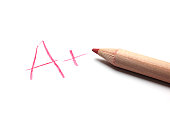
Home > Music Theory > Examinations
|
||||
Piano Examinations for Certs
While there are many different organizations that offer certification, piano examinations for certifications are fairly similar. These examinations largely attempt to test the same skills, so the design is often quite similar. Some of the more specialized certifications might have more focus on different areas. Practical examinations usually get the most emphasis for certifications that are more focused on performers, such as college programs in Piano Performance. These examinations focus on your actual ability to play the piano. Despite being focused on performance, practical examinations are nearly impossible to complete without a good knowledge of music theory. Most practical examinations consist of prepared and sight reading sections. Prior to the examination you are usually given several songs to learn beforehand. In addition, you are going to be expected to play a piece you have never seen before by sight reading the sheet music as you play it. The prepared pieces are usually much more strictly judged than the sight reading section. Theory sections of piano examinations for certifications are common, but the exact depth can vary. In some cases, the theory section is not going to be much more in depth than the theory needed for the practical examination.
Teaching certifications often have specialized sections related to the actual teaching techniques used by the certification board. For example, the Suzuki Association of Americas teaching certification requires demonstrating you understand how to teach the Suzuki method on piano. The practical or theory examination might be incorporated into the teaching examination, as well. Of all the piano examinations for certifications, the teaching examinations have the most variance. In some cases, the examination is going to consist of a practical and theory examination that most piano players can pass fairly easily. More specialized teaching organizations have very specific requirements to pass their examination. For example, the Suzuki method is not the only piano teaching method in use, but you are not going to get certified by the Suzuki Association if you attempt to use any other method of teaching during the examination. The value of piano certifications is questionable depending on your goals. Plenty of pianists have become successful with no formal training or certifications. However, some employers might not even look at a resume for a pianist without some sort of certification. In the long run, getting a piano certification is never going to be a hindrance. However, in some scenarios it may provide little to no benefit. The easiest way to determine if you need a certification is by checking to see if the employers you potentially want to work for require or prefer you have a particular certification.
http://pianoplayerworld.com/ChristmasKeys.html
| ||||
|
Although every attempt has been made to make information as accurate as possible, we are not responsible for any errors that may appear.
 Compared to many professions, there is no certification that is necessary to work
professionally as a musician. However, some potential employers for a pianist value particular certifications,
since it gives an objective demonstration of ability.
Compared to many professions, there is no certification that is necessary to work
professionally as a musician. However, some potential employers for a pianist value particular certifications,
since it gives an objective demonstration of ability.
 In other situations, the theory examination might expect you to understand
advanced composition techniques, like counterpoint, analysis and may include sections of music history. More
formal conservatories often have the most strenuous focus on the theory examination, while many performance
and teaching certifications are often less focused on it.
In other situations, the theory examination might expect you to understand
advanced composition techniques, like counterpoint, analysis and may include sections of music history. More
formal conservatories often have the most strenuous focus on the theory examination, while many performance
and teaching certifications are often less focused on it.



